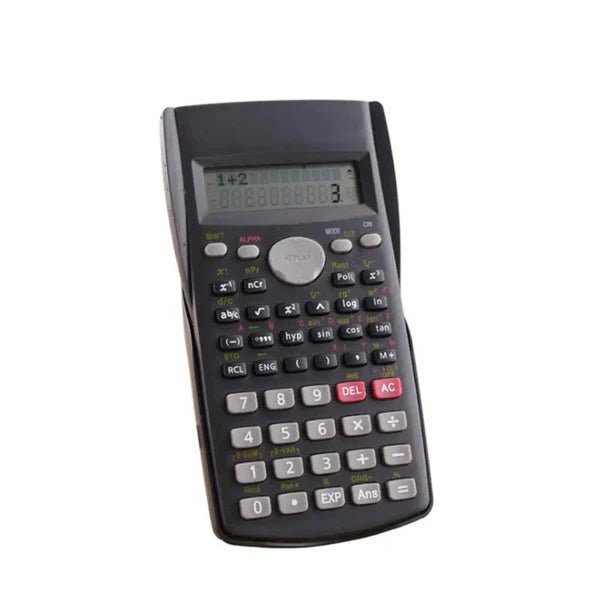
The Science Behind Scientific Calculators — Your Smartest Academic Ally
Share
Introduction
Remember the first time you encountered logarithms or trigonometric equations? Intimidating, right? That’s where a Scientific Calculator becomes your best friend. In a world of distractions, having a dedicated tool that performs fast and accurate calculations is a game-changer for both students and professionals.
Why Scientific Calculators Still Matter
With so many digital options, you might wonder why anyone would buy a calculator in 2025. The truth is, scientific calculators offer something apps don’t: reliability, focus, and permission in academic settings.
Core Functions and Capabilities
Scientific calculators come with a plethora of built-in functions:
- Square root, power, and factorials
- Trigonometry: sin, cos, tan, and their inverses
- Statistics: mean, standard deviation
- Scientific notation
- Equation solvers
- Fractions and percentages
Designed for Every Field
In Education
Perfect for middle school to university students, especially those in:
- Mathematics
- Physics
- Chemistry
- Biology
In Professional Life
- Engineers: Circuit design, material stress, load bearing
- Financial analysts: Interest and growth formulas
- Scientists: Data modeling, statistical analysis
Benefits Beyond Numbers
1. Speed
Quick button-based inputs let you calculate in seconds.
2. Accuracy
Eliminates risk of miscalculation due to distractions or app misbehavior.
3. Portability
Lightweight and ready to go anytime.
4. Accessibility
Affordable and accessible even without an internet connection.
Choosing Your Ideal Calculator
Here’s a short checklist:
- Do you need it for basic science or advanced engineering?
- Is exam approval important?
- Solar or battery-powered?
- Easy-to-read screen and layout?
Learning to Use One
Modern scientific calculators come with extensive manuals, and many YouTube tutorials are available. Spend an hour learning the features, and you'll save countless hours in the long run.
FAQs
1. Can I program formulas in a scientific calculator? Advanced models allow limited programmable memory.
2. Will it last a long time? Yes. With minimal care, they can last for years.
3. What about graphing calculators? Those are a more advanced version, but not always allowed in exams.
4. Can children use it? Yes—many are designed with intuitive interfaces.
5. What’s the difference from a regular calculator? Scientific calculators include a wider range of math and science functions.
6. Do I need one if I already use Excel? Yes, for quick calculations and portability. It complements, not replaces, Excel.
Final Thoughts
Whether you’re a student aiming for top marks or a professional needing accuracy on the go, a scientific calculator is a small tool that makes a huge difference.
🔹 Upgrade your academic and professional journey—invest in a scientific calculator that works as hard as you do!
